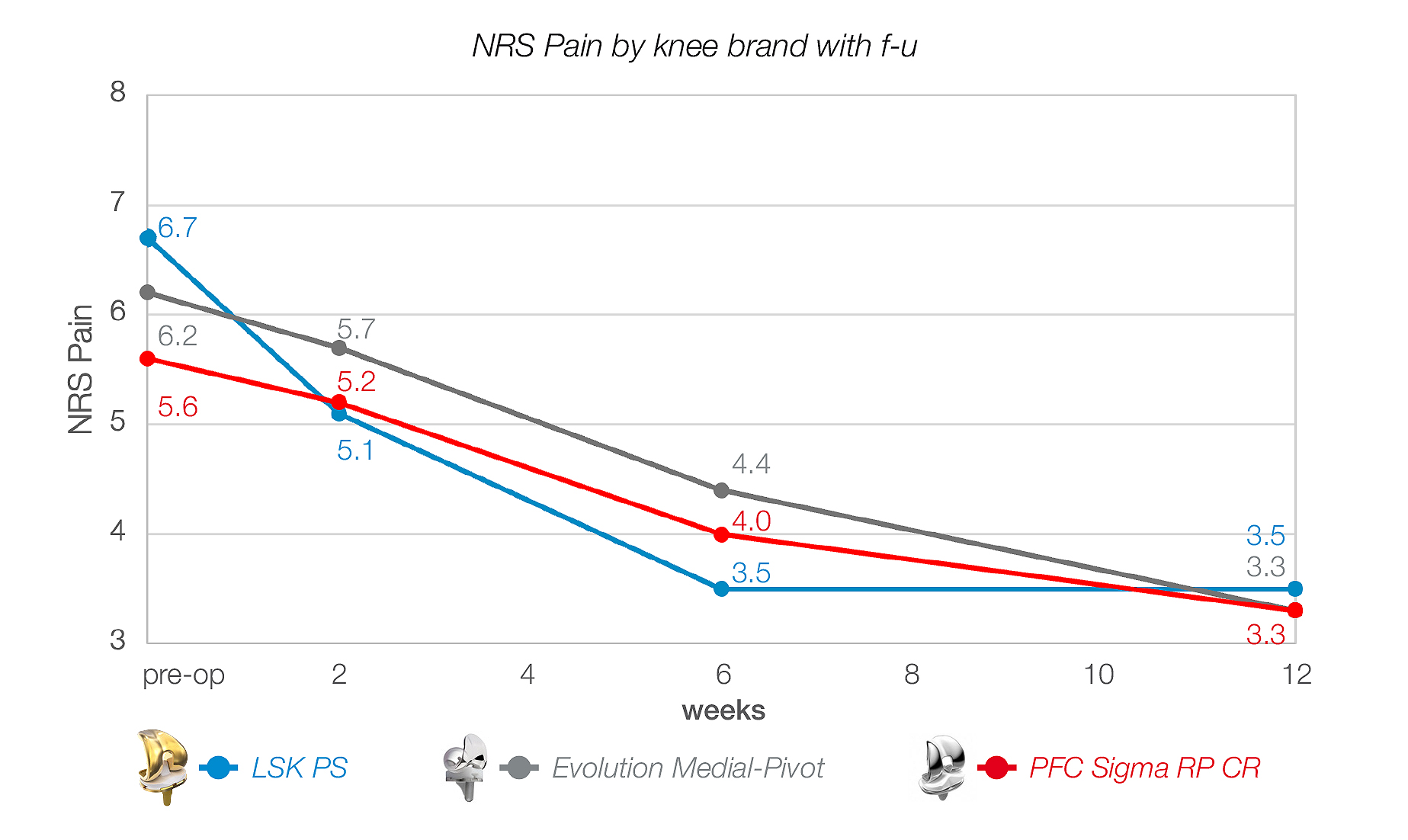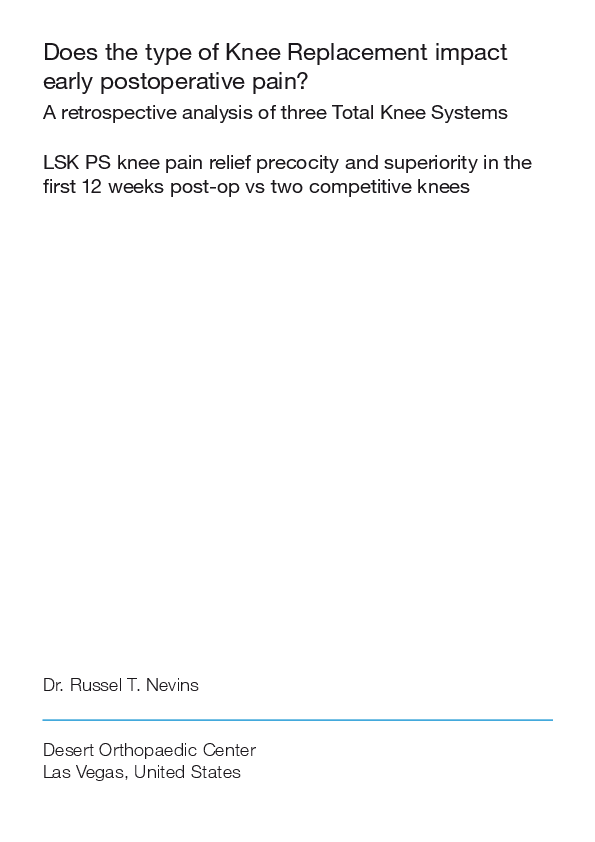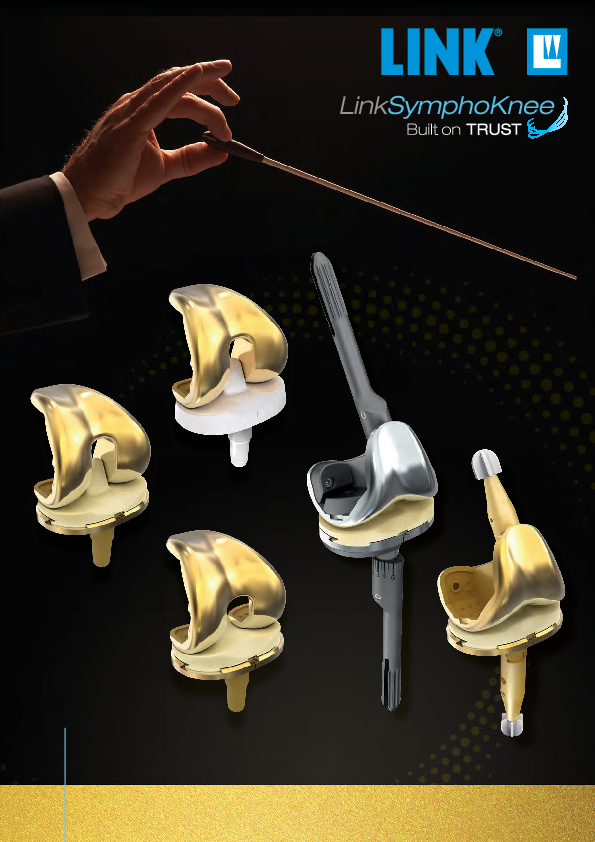Faster Pain Relief with LinkSymphoKnee PS: A Retrospective Analysis Highlights Early Benefits

Introduction
Even with high long-term survivorship, total knee arthroplasty (TKA) can leave patients dissatisfied due to persistent pain, prompting a focus on patient-reported outcome measures (PROMs). Early postoperative pain relief (2–8 weeks) is crucial for mobility and satisfaction yet is rarely captured in national registries, which typically assess patients only after 6 to 12 months.
Study Objective
A retrospective study compared three TKA systems—LSK PS, Evolution Medial-Pivot (MP), and PFC Sigma RP CR (RP)—to identify which provides the fastest, most pronounced pain relief and the most significant reduction in opioid use within 12 weeks. Pain was measured on a 0–10 numeric rating scale (NRS), and daily opioid consumption was tracked in morphine milligram equivalents (MME) among patients who had not used opioids in the previous 30 days.
Methods and Implants
A single surgeon at two centers performed 299 TKAs, equally divided among the three implants. Each procedure used the same surgical technique, but the implants varied in constraint (CR, UC, PS), bearing design (fixed or mobile), and fixation method (cemented, hybrid, or uncemented). Preoperative variables were similar across groups. Pain data and opioid usage were recorded preoperatively and at 2, 6, and 12 weeks.
Results
At 2 weeks, patients with LSK PS experienced a 23% improvement in pain scores compared to 7–8% for MP and RP. At week 6, LSK PS still led with a 48% reduction, versus 28–29% in the other groups; by week 12, differences narrowed. LSK PS also required less opioid medication, with a 35% reduction at 2 weeks, 32% at 6 weeks, and 56% at 12 weeks, amounting to a 78% overall decrease from its own 2-week baseline.
Conclusion
Compared to two other modern TKA systems, LSK PS delivered faster and more substantial pain relief and lower opioid use in the critical early postoperative period. Enhanced comfort at this stage supports better mobility and confidence, which may reduce hospital stays and facilitate outpatient procedures. The findings suggest that LSK PS can offer clear value-based benefits, combining improved patient satisfaction with healthcare resource optimization. Further studies with larger cohorts are considered necessary in the future to thoroughly investigate the reasons for these promising short-term results and to provide more clinical insights.


